Imagine strolling through your neighborhood and coming across a little bundle of joy that seems to have leaped right out of a snowy Arctic landscape and into the urban jungle. That’s the Miniature Husky for you – a delightful, scaled-down version of the majestic Siberian Husky, designed perfectly for smaller living spaces.
These charming dogs encapsulate the essence of their larger relatives in a package that fits almost anywhere, from a cozy apartment to a bustling city home. Despite their reduced size, they carry the same striking wolf-like features and vibrant personalities that Huskies are renowned for. It’s not every day you find such a perfect blend of beauty, intelligence, and adaptability.
In my journey with various dog breeds, the Miniature Husky has always been a standout. Their spirited demeanor and endearing qualities make them more than just pets; they’re companions for life. Join me as we dive into the captivating world of the Miniature Husky, exploring their unique characteristics, care needs, and why they might just be the perfect new member for your family.
TABLE OF CONTENTS
Quick Breed Summary Table
| Common names: | Miniature Husky, Mini Husky, Miniature Siberian Husky |
| Size: | 13-17 inches |
| Weight: | 20-35lb |
| Lifespan: | 12-14 years |
| Coat: | Medium length double coat |
| Color: | Many different colors and mixes of whites, blacks, red, brown, and sable |
| Do They Shed: | Yes |
| Temperament: | Mischievous, loyal, and outgoing |
| Intelligence: | High |
| Socialization: | Independent but very social with both people and other dogs |
| Destructive Behavior: | Gets destructive if bored and not exercised properly |
| People Skills: | They can be stubborn but friendly |
| Good with Children: | Yes |
| Activity Levels: | Very high energy levels |
History and Origin of the Miniature Husky
It is important to not confuse the Miniature Husky with the Alaskan Klee Kai. Whilst these breeds look similar, they are two separate breeds.
Miniature Huskies are smaller-sized standard Siberian huskies.
They were initially bred by Bree Normandin who took smaller-standard-sized Siberian Huskies and bred them together until the Miniature Husky was formed.
Miniatures are more of a companion dog but technically they are classified as working dogs.
This purebred was originally bred to carry a light load over great distances. These dogs have an abundance of energy and are highly intelligent. They require a lot of daily exercise and socialization around people and other dogs.
Physical Characteristics of the Miniature Husky
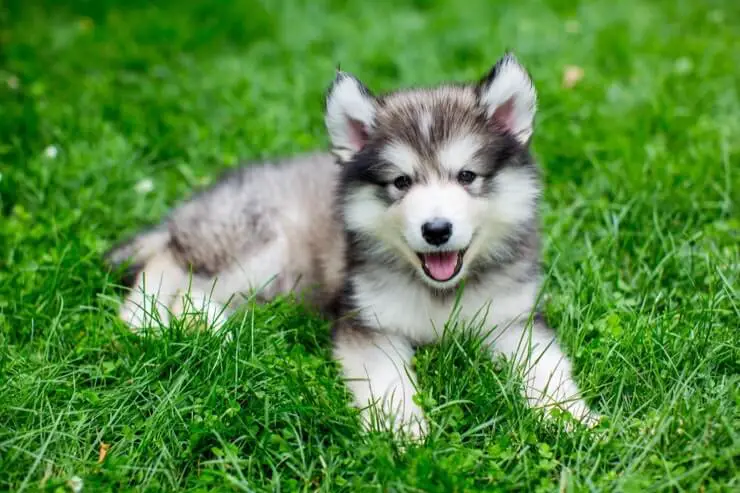
From Adobe Stock
A miniature Husky shares the same coat colorings, and markings as a standard Husky.
The only real difference is their height and weight. One striking feature that Huskies are known for is heterochromia. This is when one eye is a different color than the other eye. Ears are always erect and alert and a brush tail is present.
Size
Unlike some miniaturized breeds, where reducing size can sometimes come at the cost of the dog’s natural characteristics, the Miniature Husky remarkably retains the true Husky spirit in a more petite form.
In my time spent with these little wonders, I’ve noticed that despite their smaller stature – typically standing about 13 to 17 inches tall and weighing in the range of 20 to 35 pounds – they carry the same majestic aura as their larger Siberian Husky relatives. Their size, achieved through careful and responsible breeding practices, makes them an excellent option for those living in smaller spaces or for those who might find the physicality of a larger Husky challenging.
I’ve always admired how the Miniature Husky combines the appeal of a compact dog with the robust personality of the larger breeds. They’re energetic, playful, and have a strong presence, a testament to their Siberian heritage. In the urban setting of our kennel, they’ve adapted wonderfully, showing that their smaller size doesn’t hinder their ability to be lively and engaging companions.
Coat and Colors
These mini pups come in all the same coat colors that standard Siberian Huskies come in.
They can be in any color variation between white and black including red, brown, and sable. It is not uncommon for mini Huskies to have unusual markings or patterns on their face and body. Since they thrive in the cold snow, they have a double coat.
The coat is medium in length with an undercoat that is soft and dense. The outercoat is straight and it should be noted that the undercoat is what the mini Husky will shed during the shedding season.
Outside of their shedding season, they still shed quite a bit throughout the year and will require regular weekly brushing.
Miniature Husky Personality and Temperament
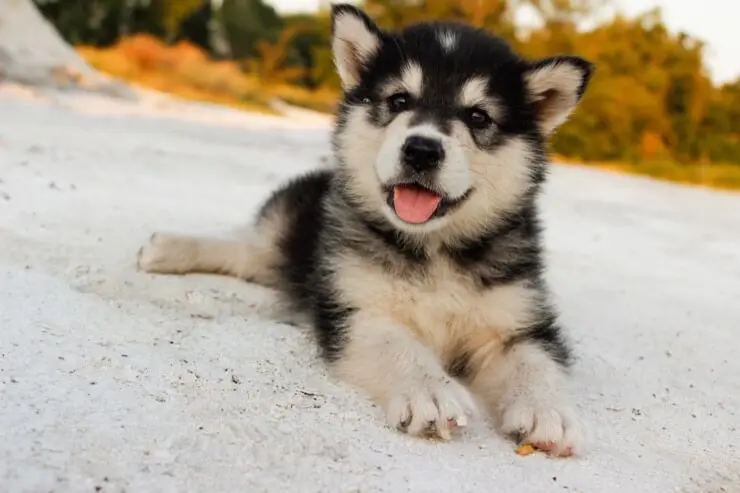
From Adobe Stock
Having worked closely with this breed, I can vouch for the immense companionship and joy they bring into any home.
Activity Level
I’ve observed that the Miniature Husky’s smaller size doesn’t equate to a sedentary lifestyle. They’re not typical lap dogs; instead, they’re bred as active companion animals with a significant love for exercise. This breed’s energetic and athletic nature requires daily physical and mental engagement. I’ve seen Miniature Huskies come alive with excitement at the chance to play or exercise, displaying their inherent energy and enthusiasm.
Working Breed Traits
Reflecting their working breed heritage, Miniature Huskies are happiest when engaged in tasks or activities. They excel in rally, agility, and obedience, not just because of their physical prowess, but also due to their intelligence and willingness to participate. In our kennel, interactive games and training sessions are key to keeping them mentally stimulated and content.
Socialization and Interaction
Naturally sociable, Miniature Huskies need consistent socialization with both humans and other dogs. They have a friendly demeanor towards children, but due to their high energy, supervision is advisable. These dogs don’t fare well when left alone for extended periods, often becoming anxious or potentially destructive. Adequate attention and interaction are essential for their well-being.
Adaptability to Environments
Miniature Huskies adapt well to various environments but are known escape artists. Ensuring a secure, fenced area is crucial when they’re outdoors. Their intelligence and curiosity often lead them to explore, so it’s vital to have a safe and secure yard.
Mischief and Exercise
A mischievous Miniature Husky usually signals a need for more physical activity or mental engagement. Regular exercise not only curbs their penchant for mischief but also strengthens the bond between them and their owners. A well-exercised Miniature Husky is a happy and well-behaved pet.
Vocalizations and Temperament
Miniature Huskies tend to howl more than bark, a trait inherited from their wolf ancestors. This makes them less suitable as guard dogs but adds to their unique character. Their vocalizations, whether howling or making other sounds, are part of what makes them so special and endearing.
Common Health Concerns for Miniature Huskies
In my experience with the Miniature Husky, I’ve found them to be relatively healthy dogs. However, like all breeds, they are prone to certain health issues.
Eye Problems
In my time caring for Miniature Huskies, one of the most common health issues I’ve encountered is related to their eyes. Conditions like cataracts and progressive retinal atrophy are not uncommon in this breed. Cataracts can cause cloudiness in the eye lens, leading to potential vision loss, while progressive retinal atrophy is a degenerative condition that can also result in blindness. Symptoms to watch for include changes in eye appearance, clumsiness, or reluctance to go into dark spaces.
Hip Dysplasia
Hip dysplasia is another condition that Miniature Huskies, like many breeds, can be prone to. It’s a genetic condition where the hip joint doesn’t fit together perfectly, which can lead to arthritis or mobility issues as the dog ages. Symptoms can include difficulty in standing up, lameness in the hind legs, or a reluctance to jump or run. In the kennel, we’ve seen a few cases where dogs start showing signs of discomfort or stiffness, especially in colder weather.
Skin Conditions
Skin conditions, including allergies and dermatitis, are also something I’ve observed in Miniature Huskies. These can be caused by environmental allergens, food sensitivities, or parasites. Symptoms include excessive scratching, redness of the skin, hair loss, or recurring ear infections. In some cases, dogs might lick or chew their paws excessively. It’s always disheartening to see a dog uncomfortable due to skin issues, but it’s fairly common.
Dental Health
Dental issues are prevalent in many dog breeds, and Miniature Huskies are no exception. They can suffer from tartar build-up, gingivitis, or even tooth loss. Symptoms include bad breath, difficulty eating, or swollen gums. Regular dental check-ups are essential, as dental problems can lead to more serious health issues if left untreated.
Caring for a Miniature Husky
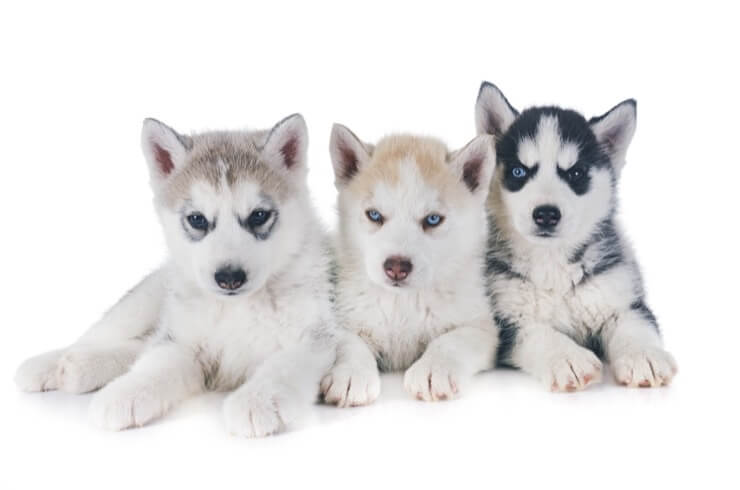
From Adobe Stock
A miniature Husky can be a very rewarding and loving companion, but it needs plenty of physical and mental stimulation. If you have the time to invest in taking them out on walks or runs and providing them with mental challenges then they will be your best friend. However, if you do not put in the time they will become bored and destructive.
Exercise
In my years working with Miniature Huskies, I’ve learned that ample daily exercise is not just beneficial for them—it’s essential. These dogs are brimming with energy and need an outlet to expend it. A large, securely enclosed yard is ideal for their playtime. They love having space to run and engage in active games. However, it’s crucial to ensure the yard is escape-proof. Due to their intelligence and size, Miniature Huskies are adept at finding the smallest escape routes, whether it’s over or under a fence.
The routine I recommend includes two walks per day, each providing more than just a stroll. These walks should be long enough for them to explore and stretch their legs. I always find that the walks are as much about mental stimulation as they are about physical exercise. In terms of total exercise, aiming for over an hour a day is a good rule of thumb. This can include playtime in the yard, interactive games, and the walks themselves. Remember, a tired Miniature Husky is a happy Miniature Husky.
Mental Stimulation
Apart from physical exercise, mental stimulation plays a crucial role in keeping Miniature Huskies content. They are incredibly smart dogs that thrive on mental challenges. In my experience, incorporating activities that stimulate their mind is as important as physical workouts. Puzzle toys are a fantastic way to keep them engaged. These toys can be filled with treats or food, encouraging them to figure out how to get to the reward.
I’ve also found that activities like hide-and-seek with their favorite toys can be very stimulating for them. It’s not just about finding the toy; it’s about engaging their senses and problem-solving skills. Such games also provide an excellent opportunity for you to bond with your Miniature Husky.
Training a Miniature Husky
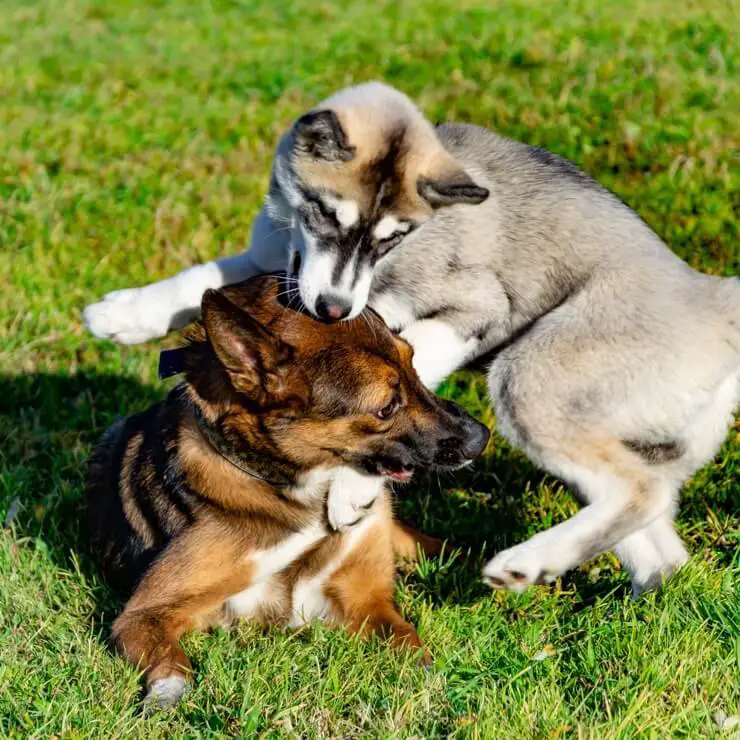
From Adobe Stock
As I mentioned earlier, the Miniature Husky is a very intelligent breed that can quickly learn new things. However, they tend to be stubborn, so it is important to implement a training program as soon as they are brought home. It is crucial to start early and find a way to train that is both fun for the trainer and dog.
Dog training requires hours of dedication, repetition, and patience. To instill trust, you should always positively reinforce your puppy when it does something good (this can range from a pat on the head to a treat).
They enjoy the outdoors and running a lot more than being cooped up so you should keep that in mind. The best way to train these dogs is through outdoor running activities. They have a lot of endurance and including activities that can help them exercise is very beneficial.
One activity they would enjoy is cycling. This involves a harness and a leash so your dog can run with you as you cycle. Huskies are also ideal candidates for agility completions as they are light on their feet and very fast.
The final and most obvious activity would be sled or dog race training. I suggest this because they have been bred to pull things over a long distance and this activity would be at the heart of what they like to do.
Grooming
Grooming is an essential aspect of pet care, a point I often stress. It goes beyond just aesthetic appeal, playing a significant role in maintaining a pet’s overall health. For breeds like the Miniature Husky, with their distinctive coats, grooming is not just a necessity; it’s a chance to bond and ensure their well-being.
Brushing
Regular brushing, several times a week, is vital for the Miniature Husky. This practice helps keep their coat free from mats and tangles and maintains skin health by distributing natural oils. During shedding periods, which occur typically twice a year, they lose their winter coat in preparation for warmer months.
Using the right tools, like a de-shedding tool or a brush suitable for thick coats, can significantly help during these intense shedding periods. I find that more frequent brushing during these times helps manage the shedding and keeps your Miniature Husky comfortable, preventing skin irritation caused by excess hair.
Bathing
Bathing your Miniature Husky should be done as needed but not too frequently. Over-bathing can strip their coat of essential oils. I recommend a mild, dog-specific shampoo and bathing them every few months unless they get particularly dirty in between.
Ear Care
It’s best to check their ears weekly for any signs of irritation, redness, or unpleasant odors, which can be indicators of infections or mites. For cleaning, I recommend using a vet-approved ear cleaner. Apply it gently with a cotton ball or pad to the outer part of the ear, being careful not to probe too deeply into the ear canal. It’s also important to ensure their ears are thoroughly dried after they get wet, whether from bathing or swimming, to prevent any moisture-related issues.
Dental Care
Brushing your Miniature Husky’s teeth several times a week with dog-specific toothpaste is ideal. Additionally, dental chews and toys can be beneficial for maintaining good dental hygiene while also providing entertainment for your dog. Don’t forget to include regular dental check-ups with your vet to monitor and maintain your pet’s oral health.
Nail Care
I recommend trimming their nails regularly, which for many dogs is typically every few weeks. Using the appropriate tools, such as specially designed dog nail clippers or grinders, is important. If you’re not confident in doing it yourself, seeking help from a professional groomer or veterinarian is a good option. Be mindful of the quick — the sensitive part inside the nail, as cutting it can cause discomfort and bleeding.
Feeding a Miniature Husky
- Calories Per Day: 1000
- Cups of Kibble Per Day: ~2
The dietary needs of Miniature Huskies differ significantly from many smaller breeds due to their high energy levels.
Understanding Their Dietary Needs
Miniature Huskies are energetic and active, requiring a diet that supports their lifestyle. Despite being a smaller breed, they shouldn’t be fed like typical lapdogs or small breeds. They thrive on a diet that’s lower in fats and carbohydrates but rich in quality meat proteins. This doesn’t necessarily mean a raw diet is required, but the focus should be on high-quality, meat-based nutrition. It’s important to monitor their growth and maintain an ideal weight – adult males should weigh between 25-35 pounds, and females should be around 20-30 pounds.
Quality of Food
Choosing the right food is crucial. Therefore, I recommend getting high-quality dog food that lists real meat as the primary ingredient. Avoid foods with unnecessary fillers or additives. The nutritional needs of a Miniature Husky vary with age. Puppies require a diet rich in calories and essential nutrients to support their rapid growth, while adult dogs need a well-balanced diet to maintain their health and energy. Senior dogs may require lower-calorie diets but with sufficient fiber and essential nutrients to support their aging bodies.
Feeding Schedule from Puppy to Senior
- Puppies (Up to 1 year): Puppies have small stomachs but big energy needs. Feeding them 3-4 times a day is ideal. As they approach their first year, you can gradually reduce this to twice-daily feedings.
- Adults (1-7 years): Most adult Miniature Huskies do well with two meals a day. This helps regulate their energy levels and digestion.
- Seniors (7+ years): Senior dogs may need to switch to a senior-specific diet. Their metabolism slows down, so they may require fewer calories. Continuing with two meals a day is generally good, but portions may need adjusting.
Portion Control
Managing portion sizes is key to preventing obesity. Start with the recommended guidelines on the dog food package but adjust based on your dog’s activity level, weight, and overall health. Regular vet check-ups can help you determine if your feeding regime is on track.
Treats and Snacks
While treats are an important tool in training and bonding, they should only be a small part of the diet. Overindulgence can lead to weight gain. I recommend choosing healthy treats like small pieces of cooked meat or vegetables. Always keep treats to less than 10% of their daily caloric intake.
Fresh Water
Always ensure your Miniature Husky has access to fresh, clean water. Proper hydration is as important as proper nutrition.
FAQs on Miniature Huskies
Is the Miniature Husky a good family dog?
Miniature Huskies are good with kids and will get along great with anyone in the family. They enjoy human attention and will fit in nicely with most active families.
Do Miniature Huskies require a lot of grooming?
Yes, Miniature Huskies require regular grooming due to their thick double coat. They need to be brushed several times a week to prevent matting and to manage shedding, especially during their bi-annual heavy shedding seasons. Regular grooming not only keeps their coat healthy but also helps to build a bond between the dog and the owner.
Are Miniature Huskies easy to train?
Miniature Huskies are intelligent and can be trained, but they also have a streak of independence and can be stubborn at times. They respond well to positive reinforcement techniques like treats and praise. Consistency and patience are key in their training. Early socialization and obedience training are recommended to shape them into well-behaved adults.
Can Miniature Huskies adapt to living in apartments?
While Miniature Huskies are smaller than their standard counterparts, they are still active and energetic dogs. They can adapt to apartment living as long as their exercise needs are met. This includes daily walks, playtime, and mental stimulation. A lack of sufficient exercise can lead to behavioral issues due to pent-up energy.
Are Miniature Huskies good with other pets?
Miniature Huskies are generally sociable and can get along with other pets, especially if raised with them from puppyhood. However, due to their high prey drive inherited from their Siberian Husky ancestors, care should be taken around small animals. Proper introduction and socialization are important when bringing a Miniature Husky into a home with other pets.
What health issues should I be aware of with Miniature Huskies?
Like all breeds, Miniature Huskies are prone to certain health issues. Common concerns include hip dysplasia, eye problems such as cataracts, and skin conditions. Regular veterinary check-ups and a healthy lifestyle can help in the early detection and management of these conditions. Prospective owners should be aware of these potential health issues and be prepared for routine health care.
How long does a Miniature Husky live?
A miniature Husky on average lives between 12-14 years.
How much does a Miniature Husky cost?
You should expect to pay around $1500 for a miniature Husky puppy.
Maybe, You’ve Found a Perfect Furry Companion
The Miniature Husky, a spirited and affectionate breed, is a perfect match for those who lead an active lifestyle. The way I see them bubbly and excited at the kennel, they may not be for the sedentary. They thrive with owners who embrace their high energy and mischievous nature, dedicating time to meet their substantial exercise and mental stimulation needs. Their capability to endlessly run and play is matched only by their unwavering loyalty to their human companions.
Despite their love for activity, I find that Miniature Huskies are surprisingly adaptable and can thrive in apartment settings, provided their physical and mental exercise requirements are consistently met. They are intelligent, playful, and sociable, making them excellent companions for active individuals or families.

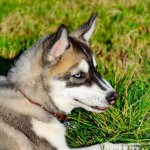
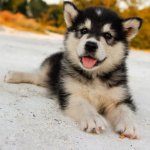
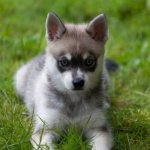
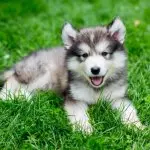
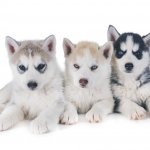
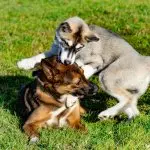
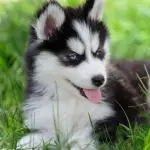
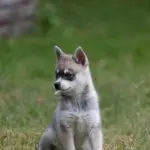
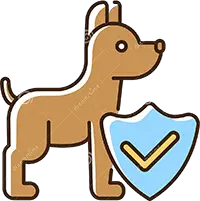
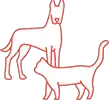
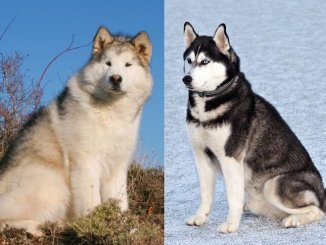
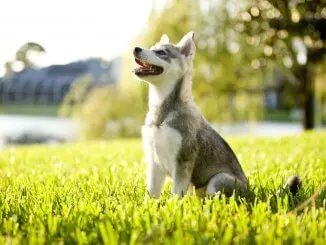
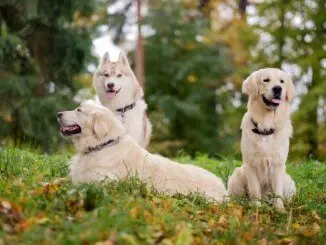
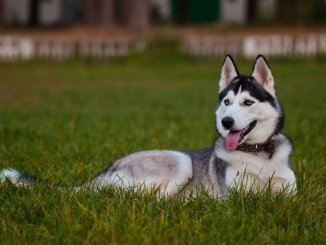
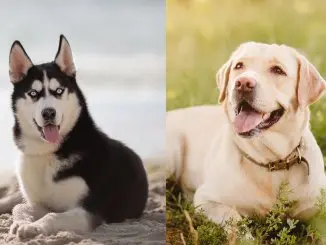
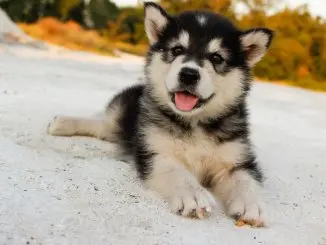
I have had 4 huskys last 30 years. Love them!
I am looking for a miniature husky to get as a family pet for my fiancé and I neither of us can have kids any more and we would like one to raise as a pup so we can have a fur baby together to raise like our child and give us something to do together. So please contact me if anyone is breeding any and selling any at moment when you read this. Sincerely Donald Wayne Stephens
Hello Wayne, we have a Miniature Husky male we mated with our Klee Kai female. If you don’t know, a Klee Kai is like a long haired Miniature Huskey. She is due to have 3 pups any day now. They are both gorgeous, incredibly smart, and BEST mannered dogs. They truly are our babies! Both are also extremely healthy and have regular checkups with vet. Feel free to email me if interested, crefreshed2222@yahoo.com. – Christine
Hi Christine,
Did your klee kai have her puppies and are they available?
Look forward hearing from you.
Thanks
Bree
Hey i need one of best in breed dog breeder
Hi, we are looking for a miniature husky breed. We both just moved into our new home and are looking for a new edition. If anyone knows of a breeder that is preferably reliable, please contact us.